Trump plan to offer citizenship to 1.8m undocumented immigrants
- Published
Undocumented immigrants: "Life in the US is like a rollercoaster"
The White House has outlined an immigration plan for nearly two million people to become US citizens in exchange for funding for a controversial border wall with Mexico.
The framework was suggested by a senior Trump aide, ahead of legislative negotiations with Democrats.
The proposed bill, to be unveiled on Monday, requests $25bn (£17.6bn) in funds for a wall on the Mexican border.
The Democrats, who oppose funding for the wall, have criticised the plan.
What is the plan?
The details emerged in a conference call on Thursday between White House policy chief Stephen Miller and Republican congressional aides, according to US media.
Mr Miller reportedly described the White House plan as a "dramatic concession".
The blueprint sets out a 10-12-year path to citizenship for 1.8 million people.
Can US border agents lawfully search you?
This includes some 700,000 so-called Dreamers, immigrants who illegally entered the US as children and were protected from deportation under an Obama-era programme, Deferred Action for Childhood Arrivals (Daca).
The other 1.1 million would be immigrants who did not apply for Daca but are eligible for the scheme.
The White House framework also seeks to end two other initiatives often criticised by President Donald Trump.
It proposes to curtail so-called chain migration, permitting US residents only to get visas for their spouse and children, not for extended family members.
The White House also wants to scrap the diversity visa lottery, under which 50,000 people from around the world every year win Green Cards at random.
Am I American yet?
What's the reaction?
Republican US Senator Tom Cotton, one of the most conservative voices on immigration policy, welcomed Mr Trump's plan.
"The president's framework is generous and humane, while also being responsible," the Arkansas senator said in a statement.
Democrats were less impressed. "Dreamers should not be held hostage to President Trump's crusade to tear families apart and waste billions of American tax dollars on an ineffective wall," Senate Democratic whip Dick Durbin said in a statement.
New Jersey Senator Bob Menendez was among those tweeting their frustration.
Allow X content?
This article contains content provided by X. We ask for your permission before anything is loaded, as they may be using cookies and other technologies. You may want to read X’s cookie policy, external and privacy policy, external before accepting. To view this content choose ‘accept and continue’.
United We Dream, a young immigrants' organisation, called the White House plan "a white supremacist ransom note".
Why is Daca important?
Mr Trump cancelled the programme in September and gave Congress a March deadline to come up with a new plan.
The president has so far rejected bipartisan proposals that have been presented to him.
Congress' failure to secure a deal on immigration triggered a brief shutdown of the federal government over the weekend.
The missing - consequences of Trump's immigration crackdown
On Wednesday, Mr Trump said he was optimistic that a deal on immigration would be reached that included keeping the so-called Dreamers in the country.
He added that it was an "incentive" for so-called Dreamers to work hard and "do a great job".
The Republican president has made it clear that in exchange for making a concession to help accomplish a Democratic priority, he wants the party's backing for his signature campaign promise to deliver a border wall.
However, Senate Democratic Leader Chuck Schumer this week withdrew an offer of funding for Mr Trump's proposed border barrier.
Clock is ticking
Anthony Zurcher, BBC News, Washington
There's a quote from Mark Twain that if you don't like the weather in New England, just wait five minutes. The same could be said of Donald Trump's position on immigration.
One day he'll accept - and take the heat for - any bipartisan deal Congress might strike. Later, he insists any agreement must include funding for his border wall and sweeping changes to legal immigration.
During the shutdown, he painted Democratic efforts to get a Daca vote as support for "unchecked illegal immigration". On Wednesday, he expressed an openness to giving Daca recipients a path to citizenship - something many of his supporters deride as amnesty for lawbreakers.
This could be part of some grand "art of the deal" presidential strategy, which will only be revealed in hindsight. Or perhaps congressional parties should focus on people like chief of staff John Kelly, who stayed in Washington to negotiate while the president hob-nobs with the global elite in Davos.
Either way, the clock is ticking toward another budget showdown. If the immigration impasse is to be surmounted, a solution needs to emerge quickly.

- Published1 November 2017
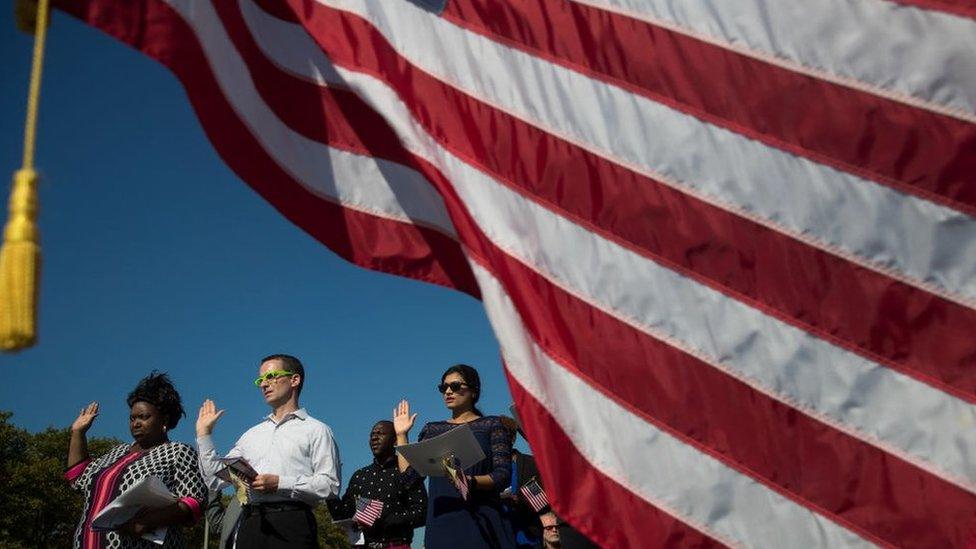
- Published25 January 2018
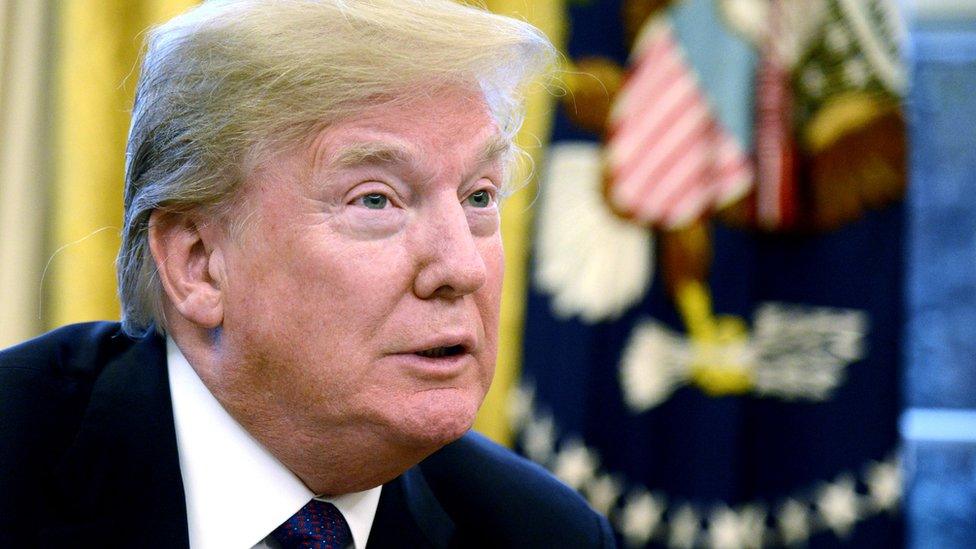
- Published12 January 2018
- Published21 January 2018
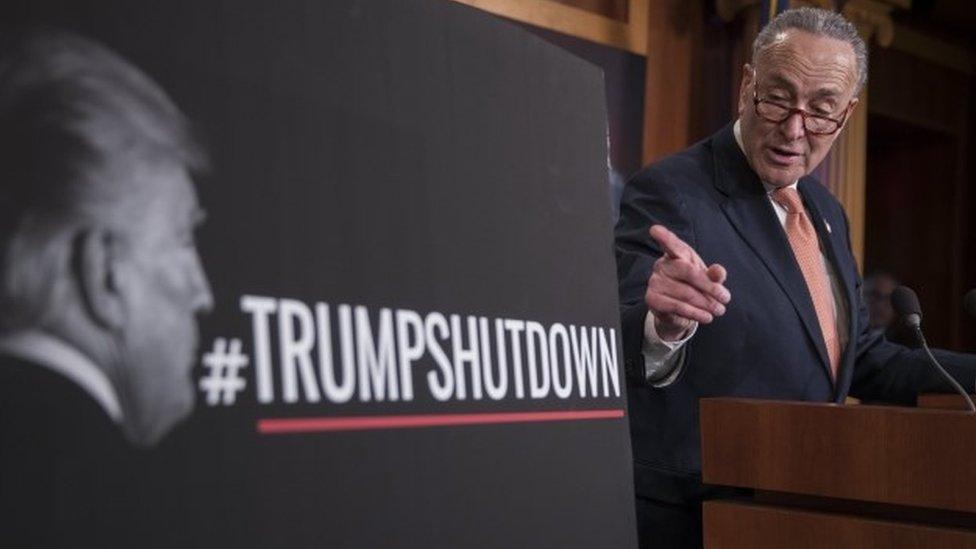
- Published9 January 2018
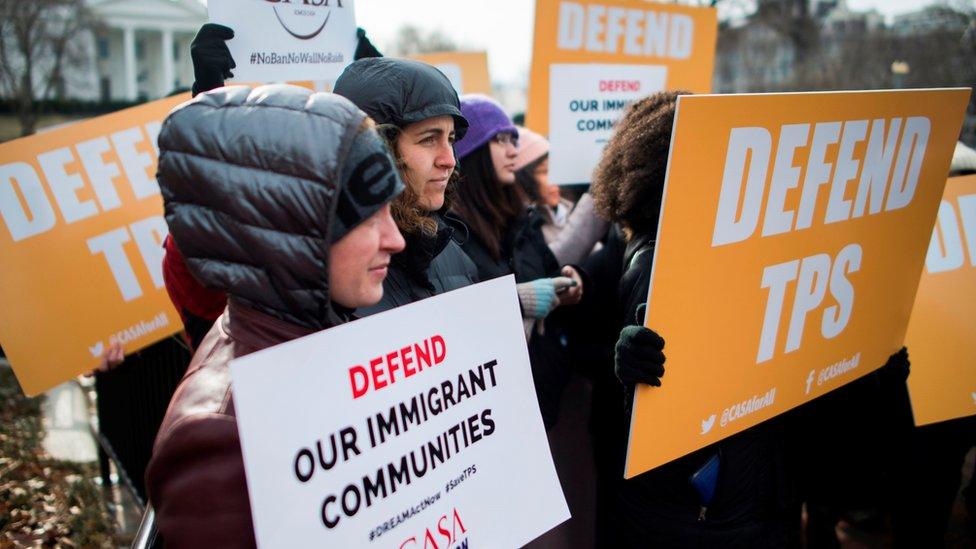
- Published25 January 2018
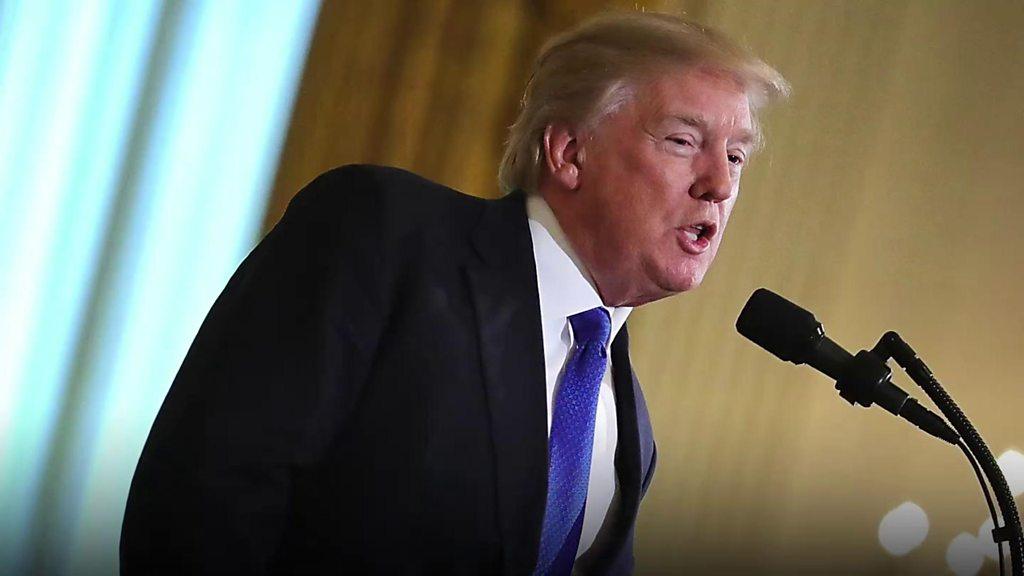
- Published24 January 2018
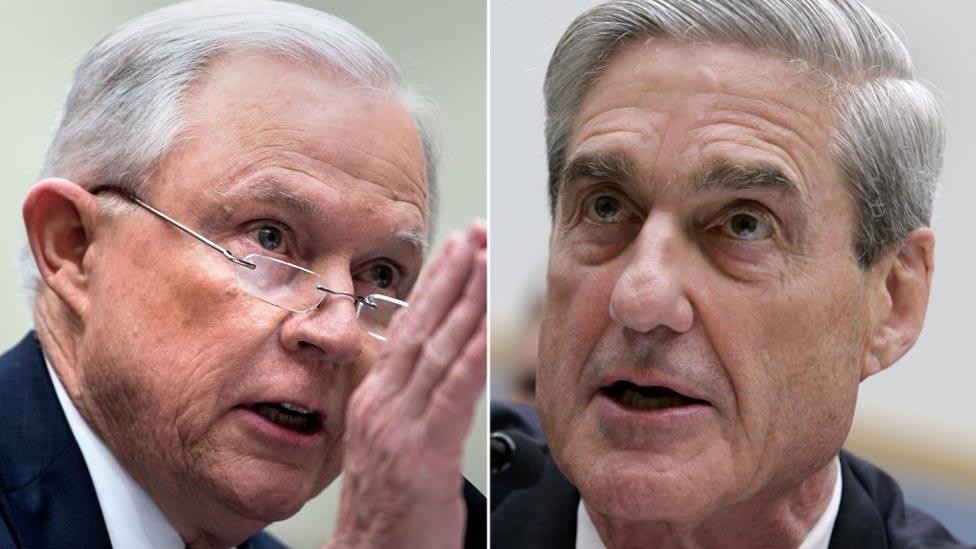
- Published25 March 2019
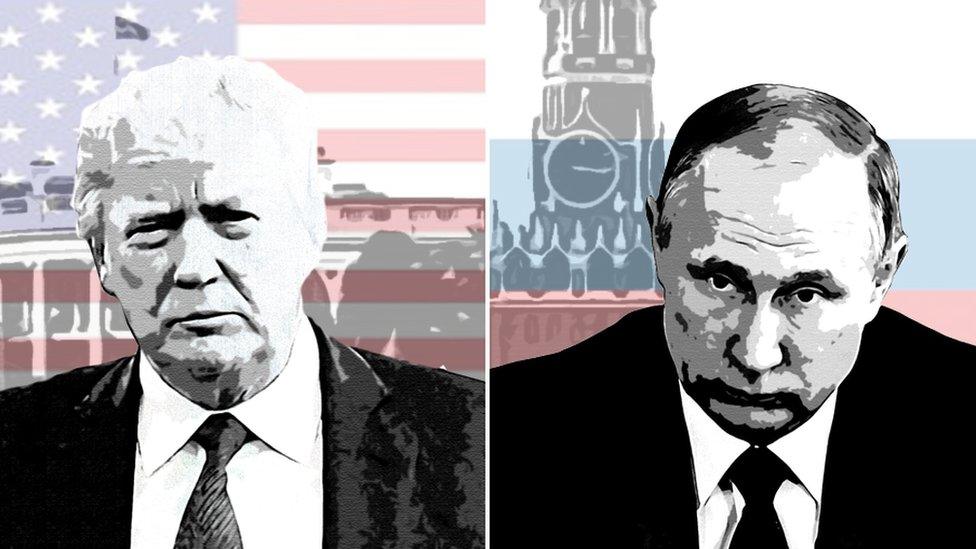
- Published24 July 2019
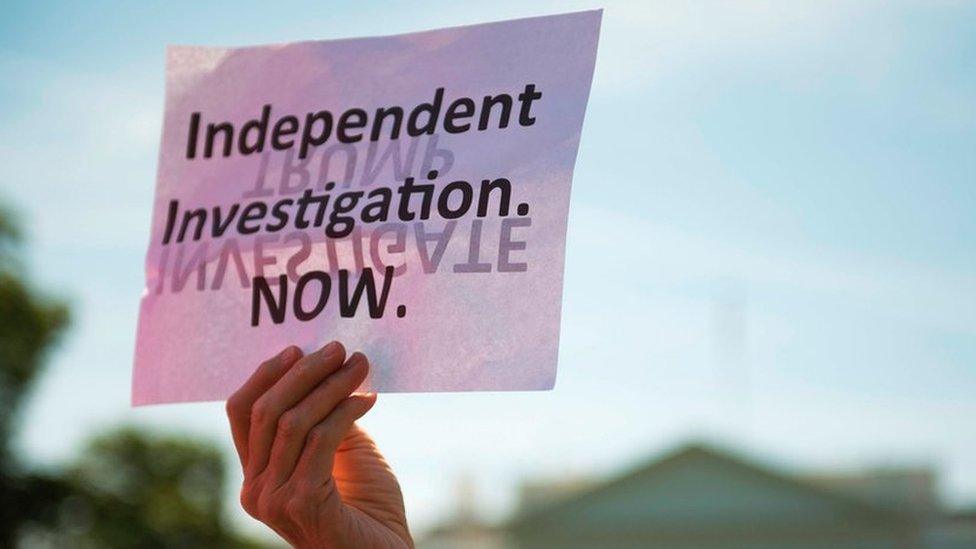
- Published10 May 2017